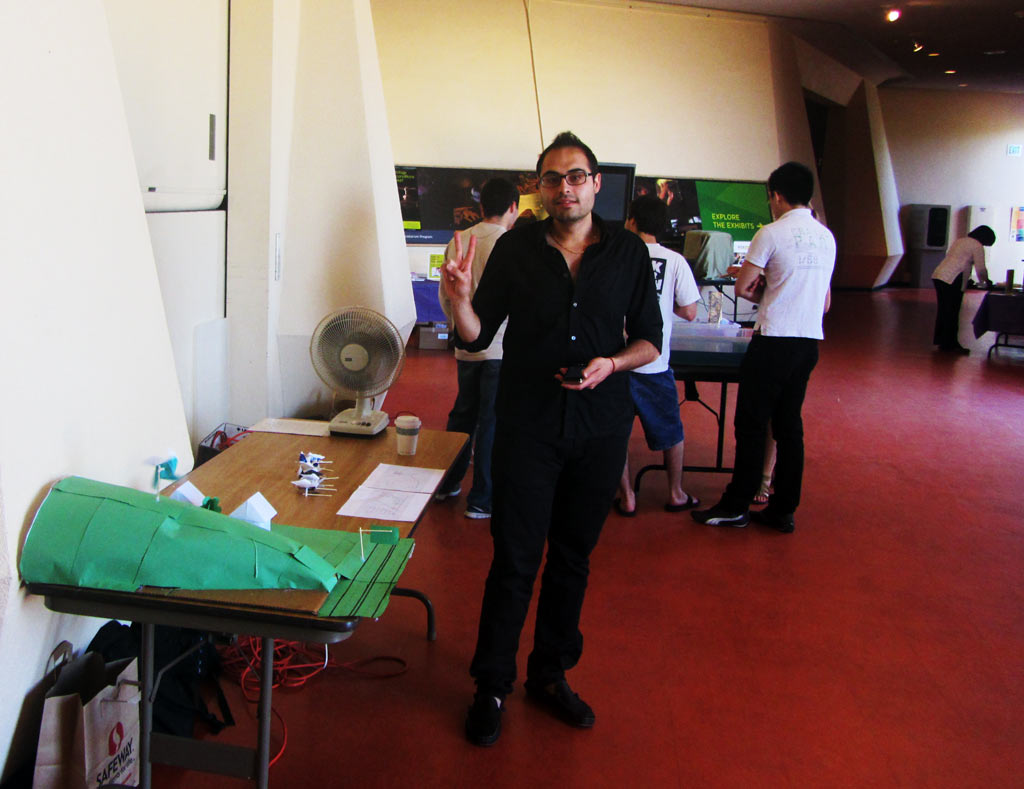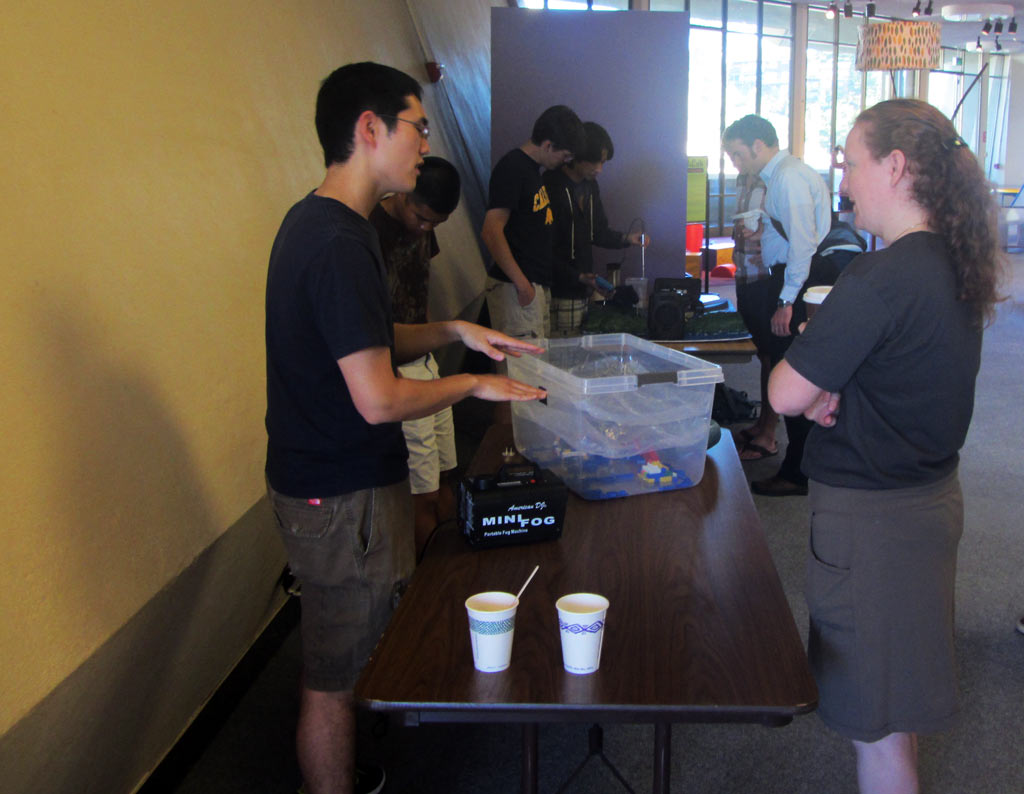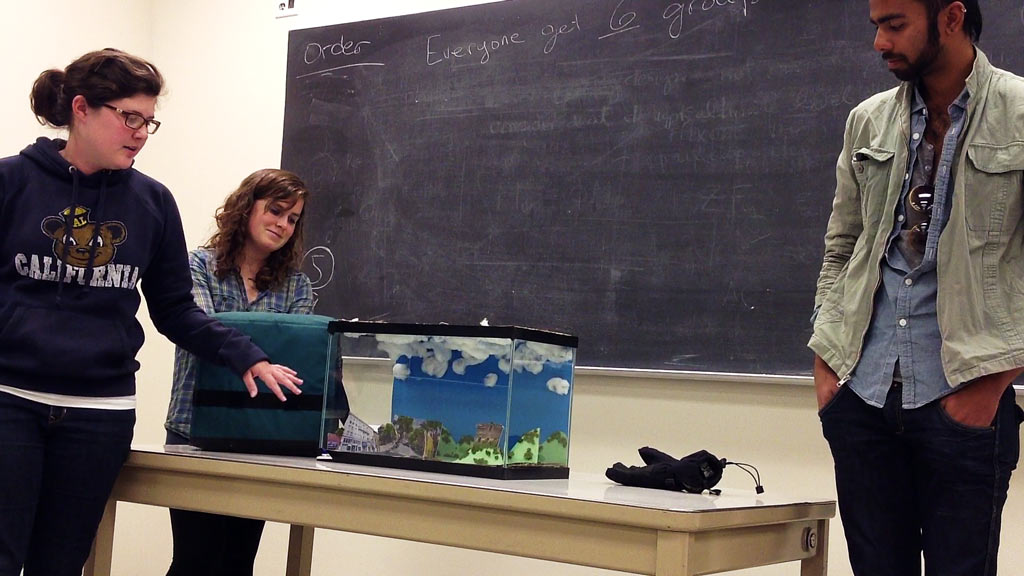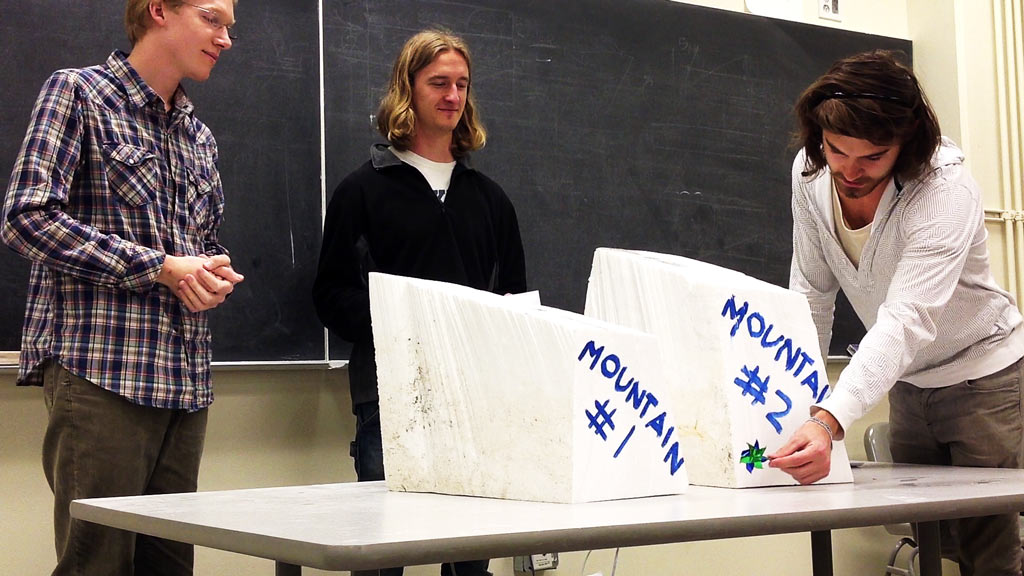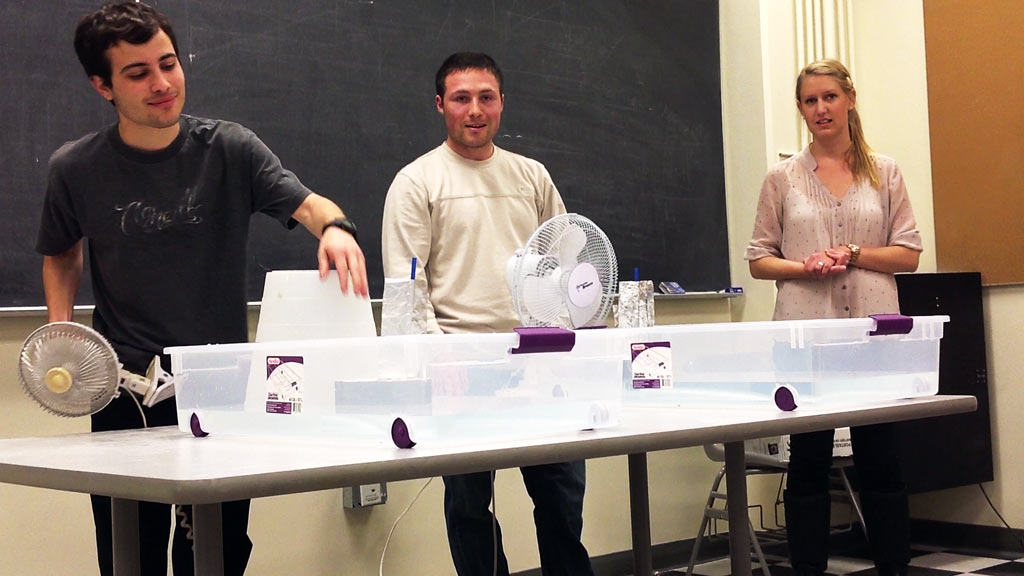About Bay Weather Outreach Project
Granted an NSF CAREER Award, Dr. Tina Katopodes Chow studied and simulated complex weather patterns over complex terrain much like the Bay Area's terrain. Specifically, she examined the atmospheric boundary layer, which is the thin layer of the atmosphere near the earth's surface and directly influences human life through weather and air quality. New knowledge gained from her research of how the boundary layer behaves will improve models used to predict weather, air pollution, contaminant dispersion, and regional climate. If you have experienced Bay Area weather, you've observed some unique things about our weather, like how the fog behaves or how smog is worse in certain parts of the Bay Area.
Dr. Chow also incorporated an outreach component to her grant, through a new hands-on design course in civil and environmental engineering. As teams of students studied and simulated the weather's behavior in our region, they also created accessible and fun hands-on activities about specific Bay Area weather phenomena. Each team proposed ideas and worked with Lawrence Hall of Science staff to improve and focus their demonstrations. LHS staff also provided basic training and tips on how to engage our visitors. As part of their final presentations in 2011 and 2012, they brought their demonstrations and engaged our visitors all day during Cal Day, UC Berkeley’s annual campus-wide open house. In 2012, this course was taught by Dr. Mike Dvorak.
For the visitors to our website, each team was also charged with creating a webpage or video about their chosen phenomena, the results of which can be found here on our View website!
Fotini (Tina) Katopodes Chow
Ph.D., M.S., Civil and Environmental Engineering, Stanford University
B.S., Engineering Sciences, Harvard University
Associate Professor, University of California, Berkeley
621 Davis Hall
Department of Civil and Environmental Engineering, MC 1710
University of California, Berkeley
Berkeley, CA 94720-1710
Funding Provided by the National Science Foundation.

